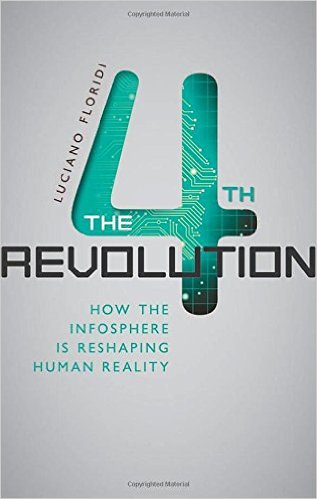
Professor Luciano Floridi
Former Professor of Philosophy and Ethics of Information
Luciano Floridi‘s research areas are the philosophy of Information, information and computer ethics, and the philosophy of technology.

Who are we, and how do we relate to each other? Luciano Floridi, one of the leading figures in contemporary philosophy, argues that the explosive developments in Information and Communication Technologies (ICTs) is changing the answer to these fundamental human questions.
As the boundaries between life online and offline break down, and we become seamlessly connected to each other and surrounded by smart, responsive objects, we are all becoming integrated into an “infosphere”. Personas we adopt in social media, for example, feed into our ‘real’ lives so that we begin to live, as Floridi puts in, “onlife”. Following those led by Copernicus, Darwin, and Freud, this metaphysical shift represents nothing less than a fourth revolution.
“Onlife” defines more and more of our daily activity – the way we shop, work, learn, care for our health, entertain ourselves, conduct our relationships; the way we interact with the worlds of law, finance, and politics; even the way we conduct war. In every department of life, ICTs have become environmental forces which are creating and transforming our realities. How can we ensure that we shall reap their benefits? What are the implicit risks? Are our technologies going to enable and empower us, or constrain us? Floridi argues that we must expand our ecological and ethical approach to cover both natural and man-made realities, putting the ‘e’ in an environmentalism that can deal successfully with the new challenges posed by our digital technologies and information society.
Readership: Readers interested in the impact of information technology, popular philosophy, and popular science and mathematics.
Luciano Floridi is Professor of Philosophy and Ethics of Information at the University of Oxford, Senior Research Fellow at the Oxford Internet Institute, and Fellow of St Cross College, Oxford. Among his recognitions, he has been appointed the Gauss Professor by the Academy of Sciences in Göttingen, and is recipient of the APA’s Barwise Prize, the IACAP’s Covey Award, and the INSEIT’s Weizenbaum Award. He is an AISB and BCS Fellow, Editor in Chief of Philosophy and Technology and of the Synthese Library, and was Chairman of EU Commission’s ‘Onlife’ research group. His most recent books are: The Ethics of Information (OUP, 2013), The Philosophy of Information (OUP, 2011), Information: A Very Short Introduction (OUP, 2010), and The Cambridge Handbook of Information and Computer Ethics (CUP, 2010).